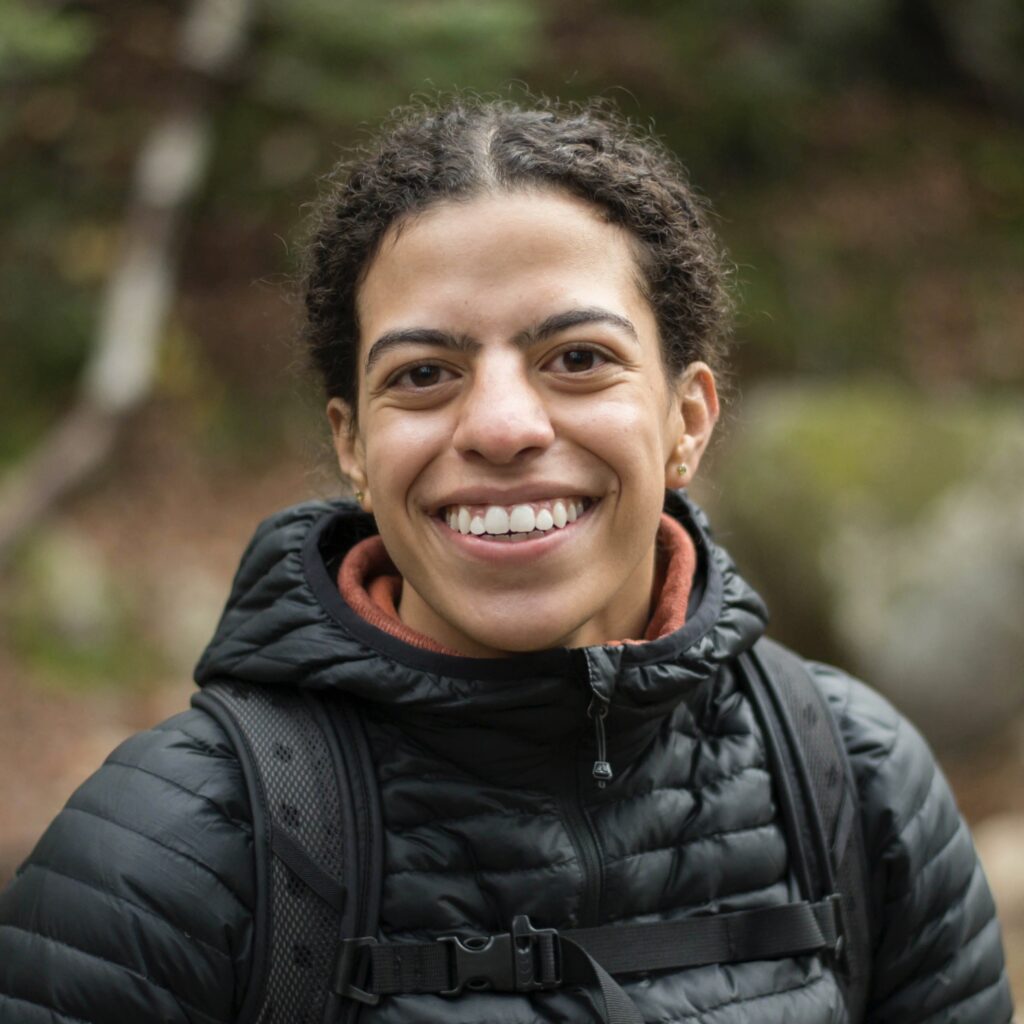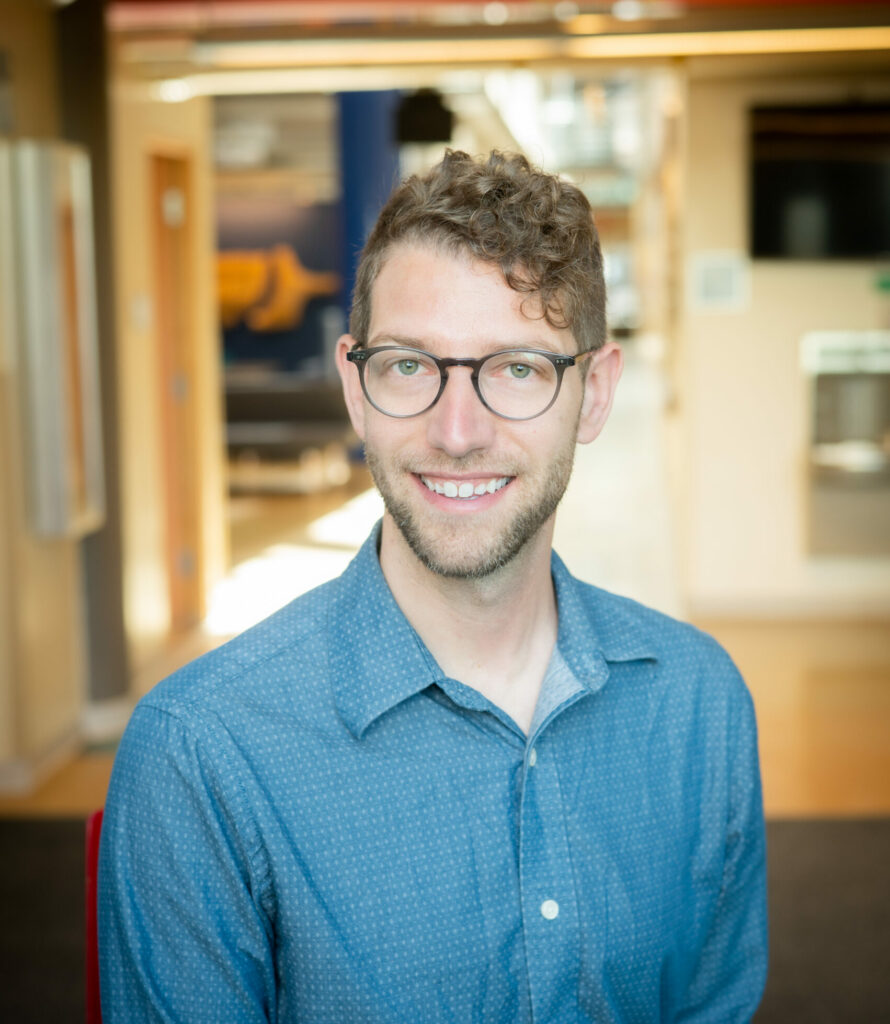
Dr. Kevin De France
Assistant Professor, Queen’s University 


Dr. Kevin De France joined Queen’s University as a tenure-track Assistant Professor in the Department of Chemical Engineering in May 2022. He was named to the 2024 Kingston Young Professionals 40 Under 40, and is the recipient of the 2024 Queen’s University Undergraduate Research Mentorship Award for his efforts in encouraging and mentoring undergraduate scholars. His research focuses on the design of sustainable materials using building blocks from cellulose and proteins.
Prior to his appointment at Queen’s, Kevin was an NSERC Postdoctoral Fellow in The Cellulose & Wood Materials Lab at Empa – Swiss Federal Laboratories for Materials Science & Technology, where he focused on understanding structure-function relationships in bio-based nanomaterials, and translation toward commercialization. This included the design of sprayable food-packaging from cellulose nanofibers, emulsion stabilized fungal propagules for biological control, and composite films from cellulose nanocrystals and protein fibers. Kevin earned his PhD in Chemical Engineering from McMaster University (2019), under the supervision of Dr. Todd Hoare and Dr. Emily Cranston, where his research focused on the design of cellulose nanocrystal hydrogels for tissue engineering applications. He was awarded the TAPPI Nano Division Student Award in 2019 to recognize his research contributions and service to the TAPPI Nano Division as a PhD student.
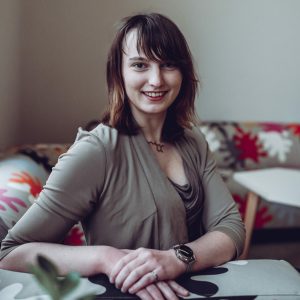
Lenka Vitkova
Postdoctoral Fellow (co-supervised with Dr. Amsden)
Project: Electrospinning crosslinkable protein nanofibers for muscle tissue engineering
Lenka is a postdoctoral fellow in the De France Lab at Queen’s University. A proud alumna of Tomas Bata University in Zlín, Czech Republic, she got her Ph.D. at the Department of Physics and Materials Engineering. Her research dives into the world of biopolymers, focusing on advanced scaffold processing for cell cultivation. Her work on the electrospinning of hyaluronan has been recognized with the Head of the Department of Physics and Materials Engineering Award. She gained international experience at the University of Luxembourg and the Bayreuth University. At Queen’s, Lenka will explore self-assembled protein amyloids as materials for electrospinning of aligned fibrous scaffolds, aiming to guide muscle cell growth and differentiation. When she’s not immersed in research, Lenka enjoys climbing, reading and absurd hypothetical questions.
Graduate Students
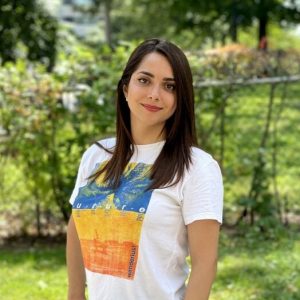
Nasim Fadaie
PhD student (co-supervised with Dr. Xin, Civil Engineering)
Project: Sustainable materials for the treatment of pharmaceutical contaminants
Nasim is a first-year doctoral student who holds a Master of Science degree in Chemical Engineering from Iran University of Science and Technology (IUST). Her academic expertise centers on Membrane Technology for water/wastewater treatment applications. She has previously worked on innovative thin-film composite membranes for forward osmosis processes. At Queen’s University, her research will be focused on developing bio-based nanofibril materials for both water treatment and biomedical applications. Outside of the lab, she is a fitness trainer and enjoys spending her free time in the gym.
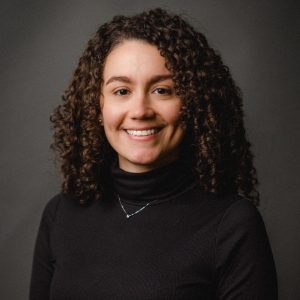
Carolina Ordonez
PhD student (co-supervised with Dr. Cunningham and Dr. Champagne, NRC)
Project: Stimuli-responsive protein nanofiber emulsions for controlled delivery
Carolina is a second year doctoral student from Colombia. Her academic background includes bioprocess, corrosion and polymers. She has six years of prior work experience in Corrosion for the Oil and Gas industry. Carolina’s current project pursues enhancing latex-based coatings with carboxylated cellulose nanocrystals. Her future work will focused on developing emulsions with protein fibers that can be stimuli-responsive for biomedical applications. Aside from research, Carolina is passionate about dancing and making crafts. She likes to do exercise and is an active member of CEGSA.

Romina Shirazi
PhD student (co-supervised with Dr. Koupaie)
Project: Sustainable materials in water treatment and anaerobic digestion
Romina is a first-year doctoral student, and completed both her bachelor’s and master’s degrees at Iran University of Science and Technology (IUST). Her research interests lie in the area of nanofibrous membrane design for water purification and other biotechnological applications. She is enthusiastic about implementing her knowledge in designing high-performance bio-based materials for wastewater treatment and medical applications. Aside from her academic activities, she is a fitness enthusiast, an amateur photographer and painter.

Mohamed Wahbi
PhD student (co-supervised with Dr. Kontopoulou)
Project: Sustainable routes to modify PLA for additive manufacturing
Mohamed is a third-year doctoral student who is interested in advancing sustainable materials for 3D printing. His academic journey began with a B.Sc. from Ibn Zohr University, followed by an M.Sc. from Cadi Ayyad University in Morocco. During his master’s studies, Mohamed participated in an Erasmus exchange program in Greece, where he spent a year dedicated to developing biobased polyesters for eco-friendly packaging. Currently, his research focuses on addressing the limitations of PLA in 3D printing applications.

Wen-Qiang Wang
PhD student (co-supervised with Dr. Xin, Civil Engineering)
Project: Designing sustainable adsorbents for PFAS removal
Wen-Qiang is a first-year Civil Engineering PhD Student from China (transferring directly from the MASc program), and brings four years of prior work experience in the chemical industry. He is interested in PFAS (Per- and Polyfluoroalkyl Substances) removal from wastewater and is committed to advancing the field. His research project will be dedicated to leveraging cutting-edge technology to enhance the adsorbents’ capacity for PFAS removal in landfills. Beyond his academic pursuits, Wen-Qiang is an enthusiastic landscape photographer and enjoys playing badminton in his free time
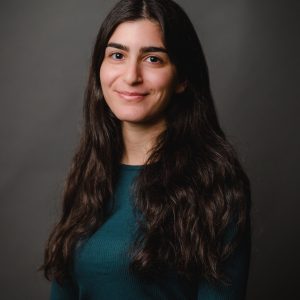
Marwa Naime
MASc student (co-supervised with Dr. Kontopoulou and Dr. Gilbert)
Project: Protein nanofiber alignment and rheological behavior
Marwa is a second year Chemical Engineering Master’s student from Lebanon who is passionate about sustainability. she is interested in integrating it into unconventional scientific research fields and exploring niche techniques to studying sustainable materials. Her project will focus on studying protein nanofiber alignment, orientation, and rheological behavior to better understand their effects on material properties. Outside academics, she is an avid enthusiast of archeology, morning runs, and escape rooms!
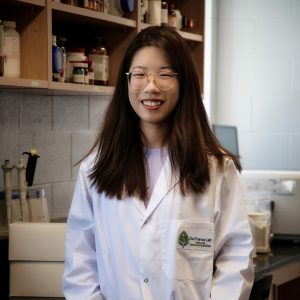
Yidan (Daniella) Wen
MASc student
Project: Protein nanofibers from algal proteins
Yidan (Daniella) started her academic journey as a nanotechnology engineering undergraduate at the University of Waterloo. Her capstone project focused on developing a glucose sensor for diabetes, based on gold nanoparticles. During her co-op she conducted research on microfluidic devices for point of care applications. She is now pursuing a Master’s degree at Queen’s University in the Department of Chemical Engineering, and is excited to explore the potential of protein nanofibers in biomedical devices and sustainable biomaterials
Undergraduate Students

Spencer McCluskey
NSERC USRA researcher & ENCH 417 Thesis Student (co-supervised with Dr. Baker)
Project: Protein nanofiber electrodes for electrochemical carbon dioxide conversion
Spencer is an undergraduate Engineering Chemistry student with an interest in applying sustainable materials to electrochemical processes. Spencer will be joining the lab as a NSERC USRA researcher co-supervised by Dr. Rachel Baker. His project will focus on the development of protein-based materials as a replacement for metal electrodes in electrochemical CO2 conversion systems. In his free time, Spencer enjoys running, hiking, and cooking.

Cassandra Koitsopoulos
ENCH 417 Thesis Student
Project: Designing emulsions from protein nanofibers
Cassandra is an Engineering Chemistry undergraduate student with an interest in nanobiotechnology and sustainable material design. For her thesis, Cassandra will be working on designing and characterizing stable emulsions using bio-based protein nanofibers (PNFs), which are eco-friendly alternatives to traditional surfactants and can help promote a shift towards greener manufacturing practices in the food, pharmaceutical, and cosmetic industries. Outside of the lab, Cassandra enjoys going to the gym, swimming, and photography.
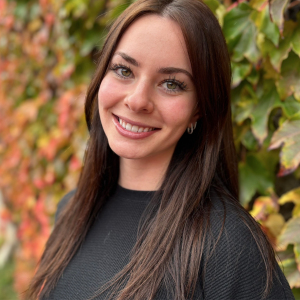
Sylvia Chamberlain
ENCH 417 Thesis Student
Project: PLA Composites Reinforced with modified cellulose nanofibers
Sylvia is an undergraduate student in Engineering Chemistry, currently completing her thesis project in the De France Lab. She is interested in material science and her research aims to enhance PLA by creating composite materials incorporating modified cellulose nanofibers. Outside of research, she enjoys baking and listening to the music of Taylor Swift.

Helen Zhang
CHEE 408 Thesis Student
Project: Designing electrospun scaffolds from protein nanofibers
Helen is an undergraduate biochemical engineering student with a keen interest in regenerative medicine. She is completing her fourth year thesis in the De France lab, where her project focuses on electrospinning fibrous scaffolds for muscle tissue engineering applications. Outside of her studies, Helen enjoys traveling and watching the latest movies.
Alumni
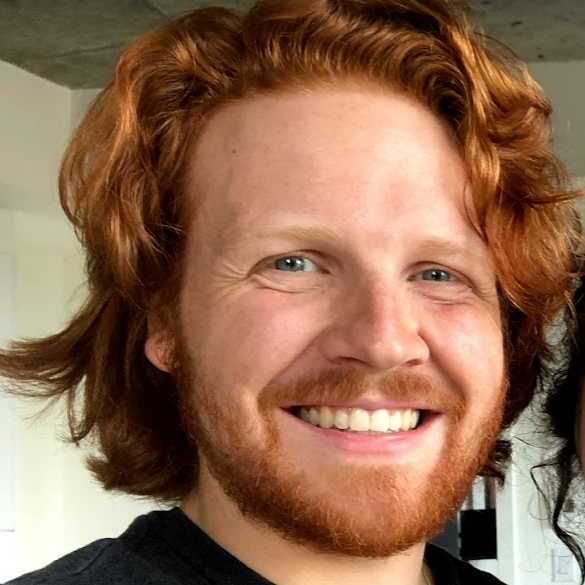
Andre Guerra Visiting PhD Student 2023 – 2024
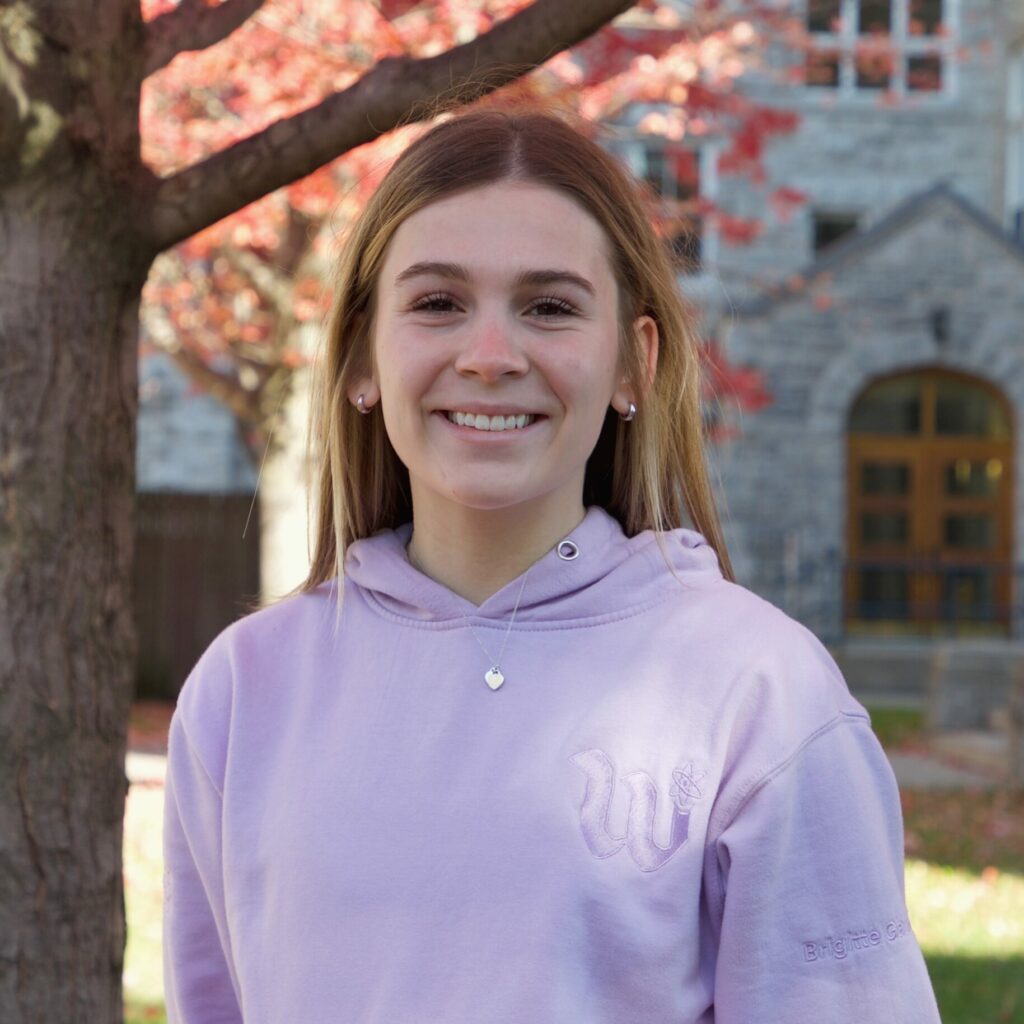
Brigitte Gaudert Undergraduate Researcher 2024
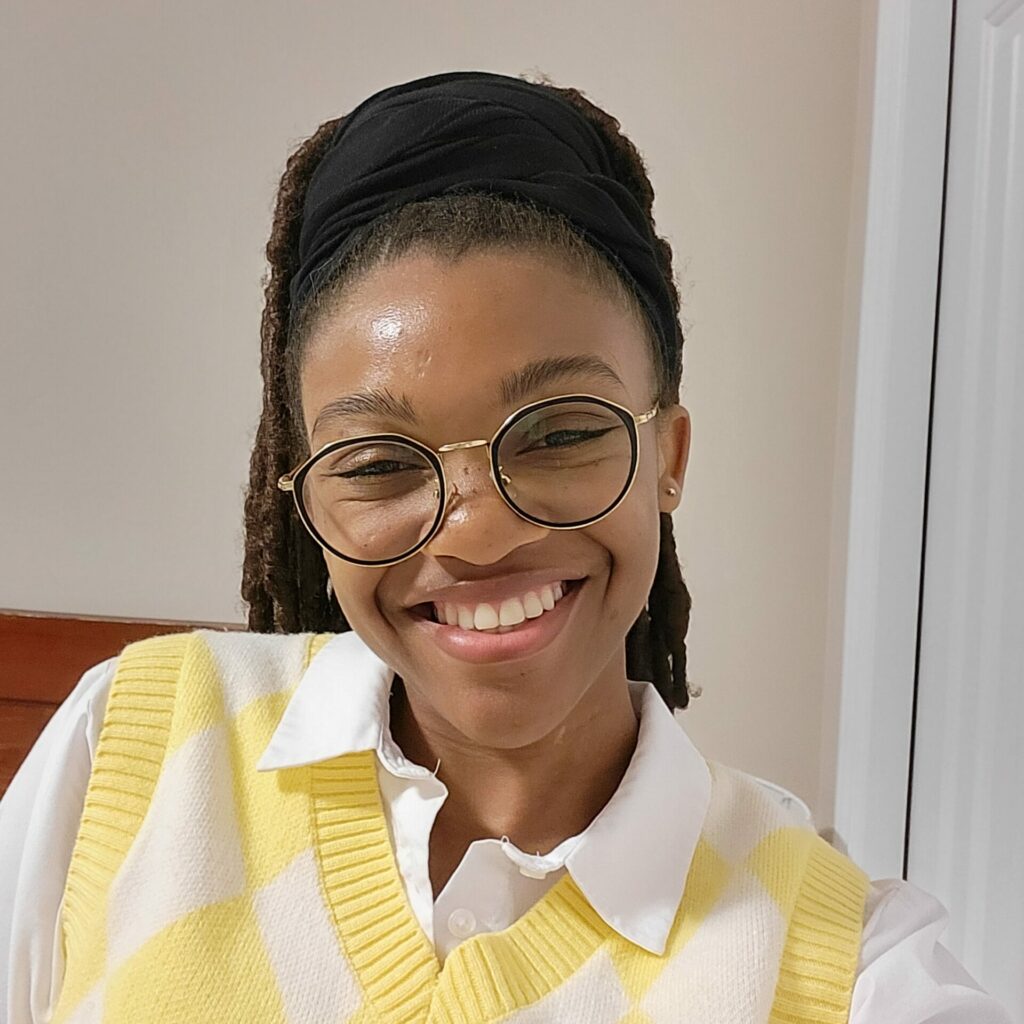
Ina Tachom Undergraduate Volunteer 2024
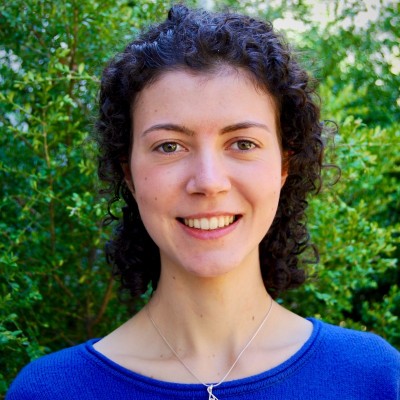
Michaela Hammond Undergraduate Researcher 2024
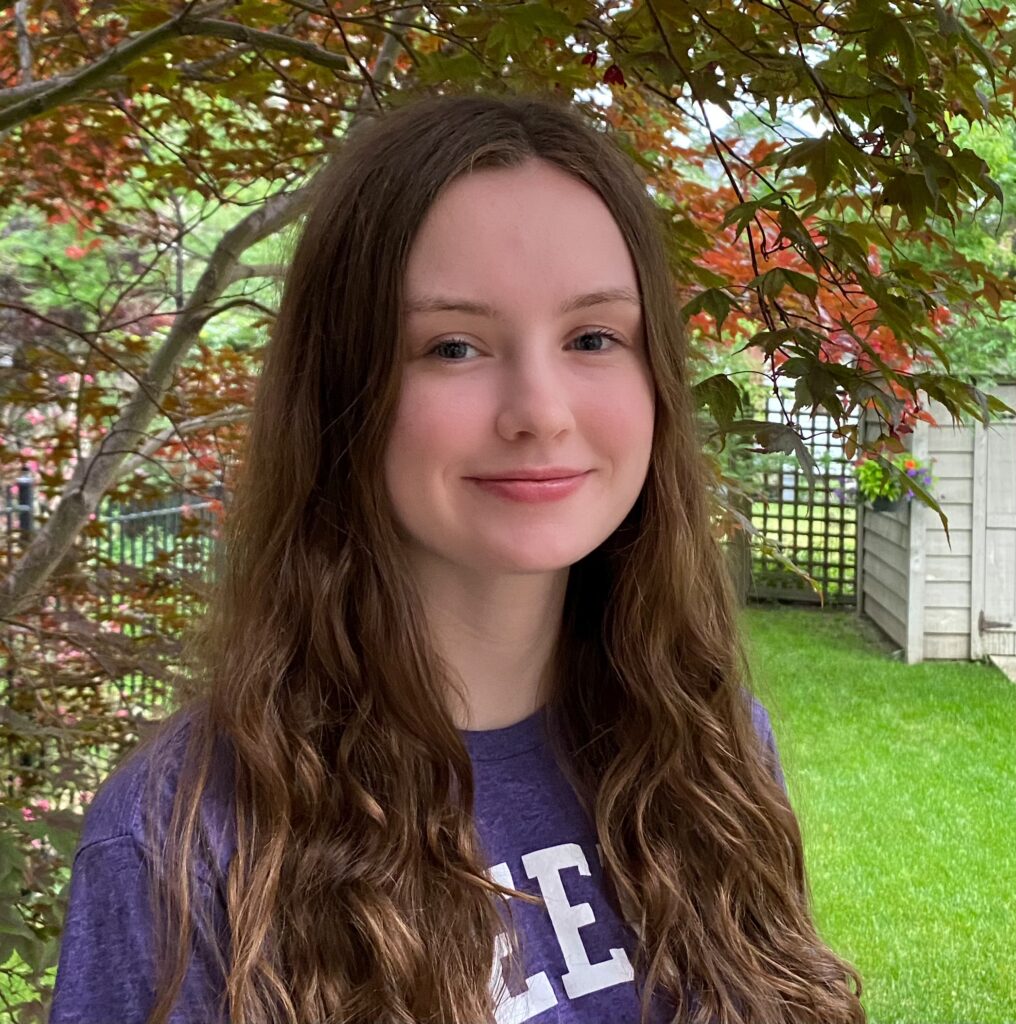
Gillian Szandtner Undergraduate Researcher 2024
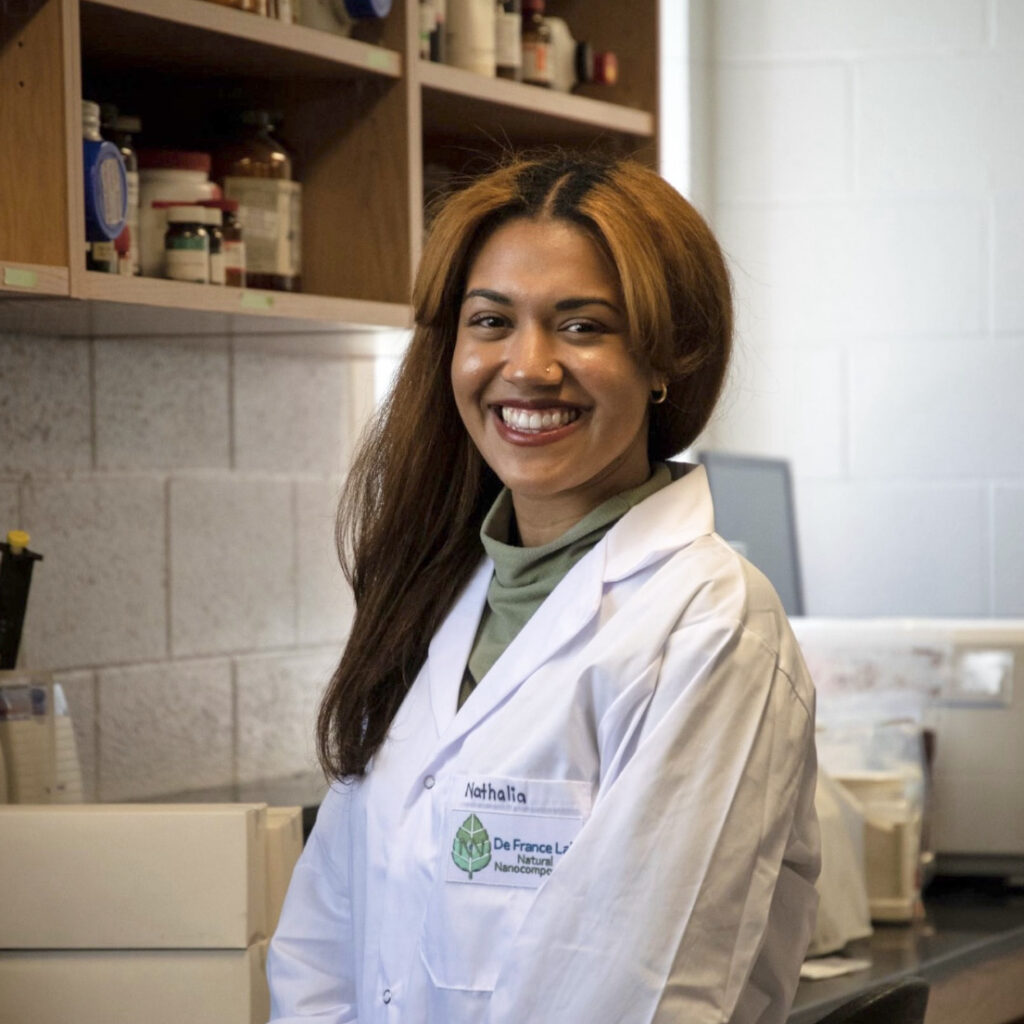
Nathalia Rosalle Undergraduate Researcher 2024
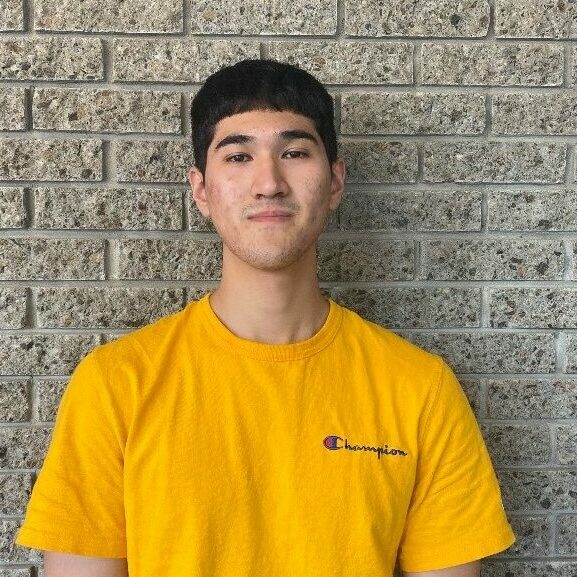
Victor Di Donato Undergraduate Researcher 2024
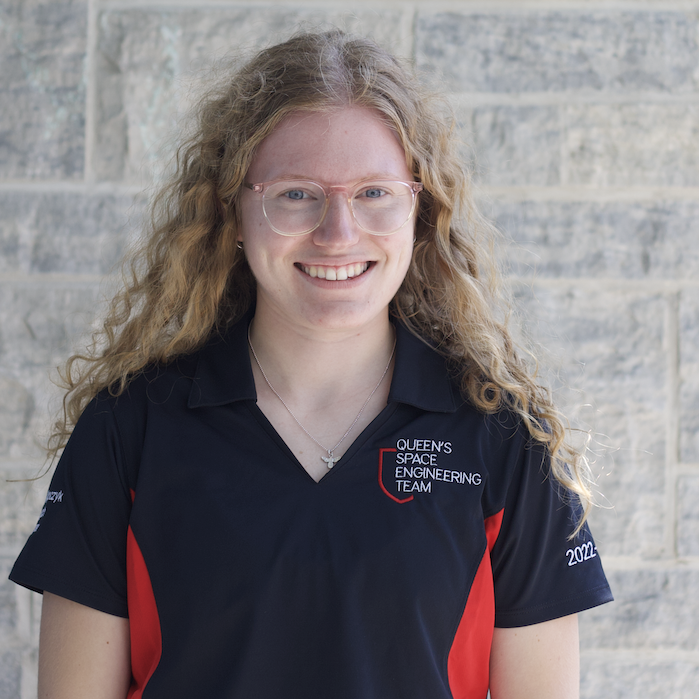
Caroline Kupczyk Undergraduate Researcher 2024
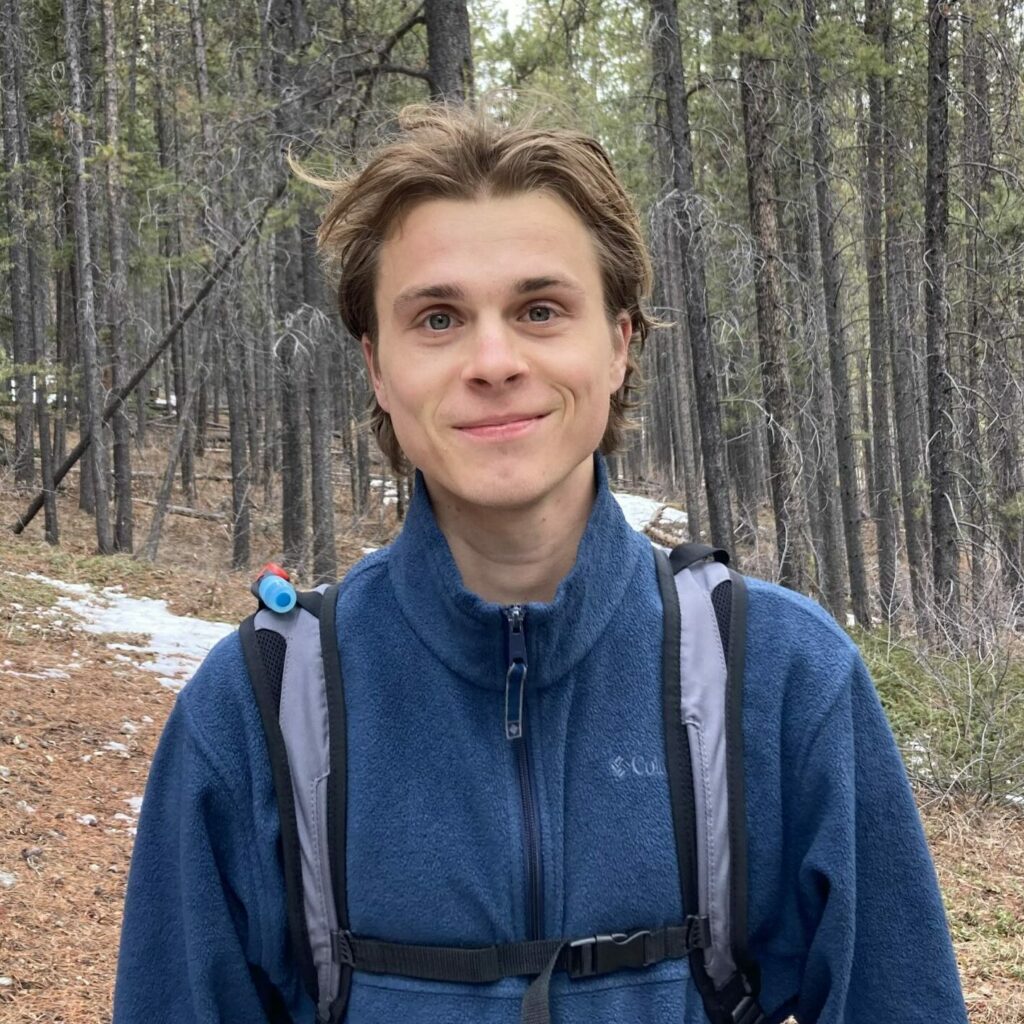
Sam Fahrngruber Undergraduate Researcher 2024
